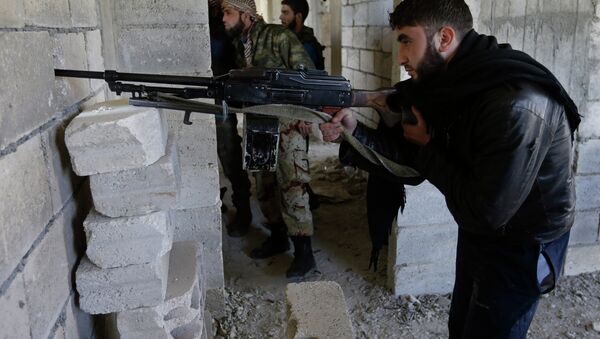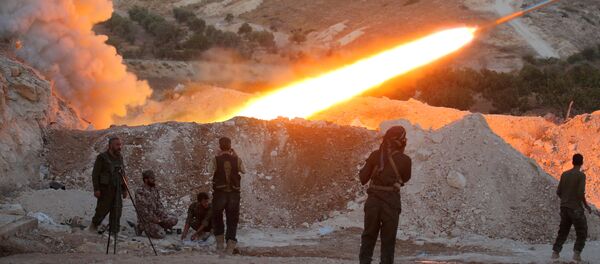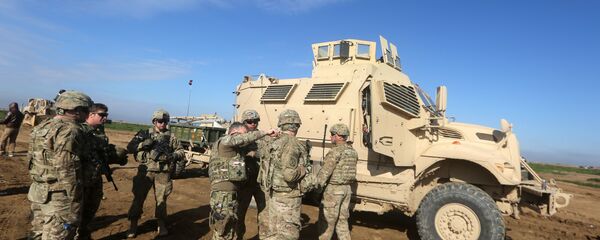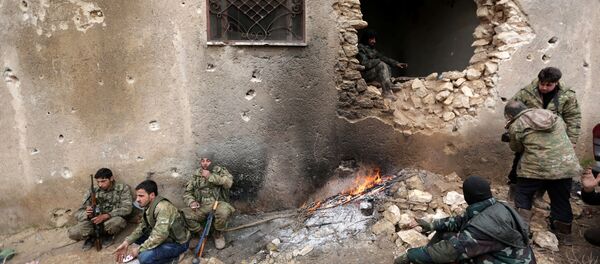Donald Trump's statement regarding the introduction of safe zones in Syria has sparked concerns among Turkish security experts.
"I'll absolutely do safe zones in Syria for the people," Trump told ABC News Wednesday, "I think that Europe has made a tremendous mistake by allowing these millions of people to go into Germany and various other countries."
"What is important is what kind of results of this work would have and what kind of information and guidance will come out from US institutions," Turkish Foreign Ministry spokesman Huseyin Muftuoglu told a press conference commenting on Trump's initiative.
Speaking to Sputnik Turkiye, Turkish retired Brigadier General Haldun Solmazturk drew attention to the fact that recently the situation on the ground in Syria has drastically changed.
"I believe that in the current stage of the Syrian peace process, [the concept] of 'safe zones' Trump was talking about differs fundamentally from [the project] the Turkish President has been proposing from the beginning of the Syrian crisis," Solmazturk told Sputnik.
The expert suggested that the new US administration plans to build safe zones in the areas currently controlled by the so-called Syrian Democratic Forces (SDF) led by the Kurdish Democratic Union Party (PYD) and its military wing, the People's Protection Units (YPG).
"Given the fact that in these very areas [the US] creates its military bases, I suppose, that the 'no-fly' regime will be introduced solely over these territories," he assumed.
For its part, representative for foreign affairs of the Syrian Democratic Forces (DSS) Abdulaziz Yunus also confirmed the presence of the US military in many parts of the unrecognized autonomous region of Rojava in northern Syria.
"It's well known that the US military is present in many parts of the district of Rojava. They are also located in the village of Til Beder," Yunus told Sputnik.
The retired Brigadier General expressed concerns over the possibility of Trump's building safe zones across the Syrian Arab Republic with the SDF's assistance.
It is no secret that Ankara strongly opposes the creation of any independent Kurdish entities near Turkey's southern borders and regards bolstering US-Kurdish ties as a challenge to its national security.
If Trump creates no-fly zones in the territories controlled by the Kurdish military it would significantly complicate Ankara's struggle against the PYD and YPG, whom the Turkish leadership considers affiliates of the Kurdistan Workers' Party (PKK), designated as a terrorist organization in Turkey.
Solmazturk argues that the project of creating the so-called "safe" or "no-fly" zones in Syria is completely unrealizable under the present circumstances.
"The situation in the Arab Republic has seriously changed. Under the present circumstances it is premature to talk about the creation of any 'safe' or 'no-fly' zones in Syria before a comprehensive political solution to the Syrian conflict is found," he said.
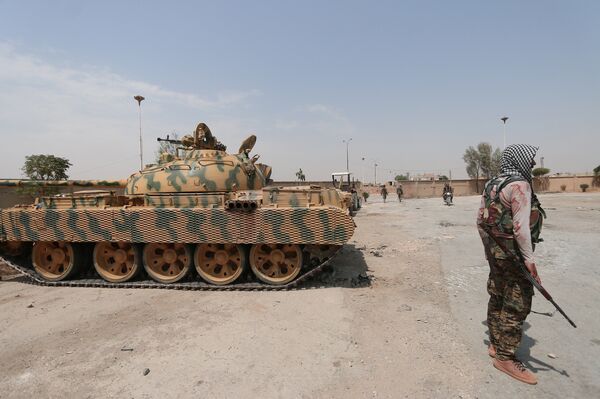
Dr. Nihat Ali Ozcan, a security policy analyst at the Economic Policy Research Foundation of Turkey (TEPAV), echoes Solmazturk's concerns.
According to Dr. Ozcan, the creation of safe zones in Syria would only prolong the war and prompt the conflict of interests in the Syrian Arab Republic.
"The idea to create safe zones in Syria has several dimensions," Dr. Ozcan told Sputnik Turkiye, "One of the key dimensions is a political one."
He explained that these zones would strengthen political positions of one of the warring parties. On the other hand, it would help the US-backed armed forces to gather strength in these safe zones and undergo necessary military training to continue their fight on the ground.
"There they [armed opposition] will feel safe from the central government, which they are in state of war with; they will be able to undergo appropriate military training and then continue hostilities," he said.
"It may extend over a dozen years," Dr. Ozcan assumed, "It is especially necessary to consider the military consequences of such a step [the introduction of safe zones]."
The question then arises who will help the US to introduce these safe zones, he stressed. If the US relies on the Kurdish military forces on the ground while implementing safe zones and fighting Daesh, the ongoing war could eventually transform into an Arab-Kurdish standoff, the analyst warned.
In any event, one should carefully weigh the pros and cons before creating any no-fly or safe zones in Syria, Dr. Ozcan concluded.
As of yet, Donald Trump has not signed any orders aimed at establishing safe zones in Syria.
